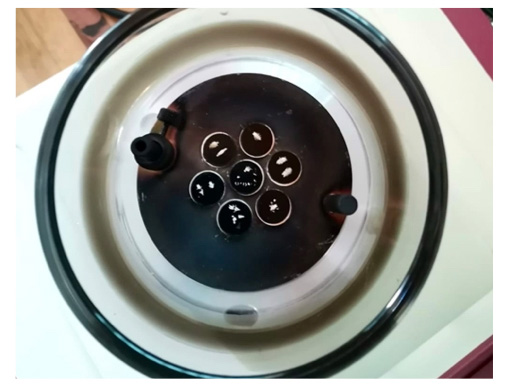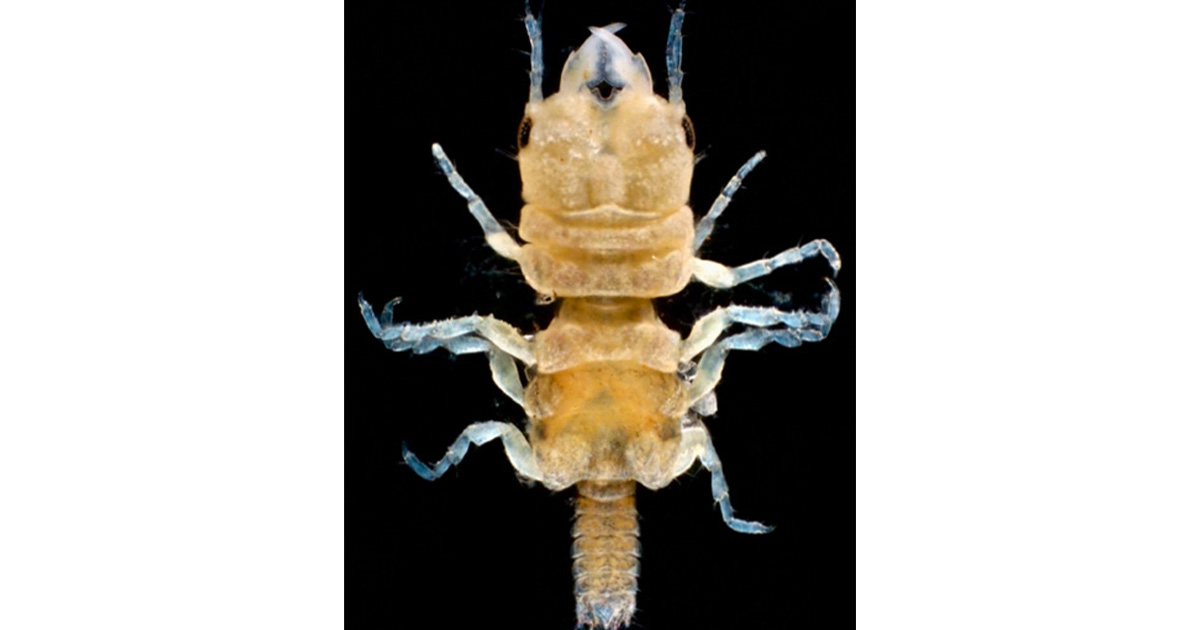An international team of scientists from the University of Miami Rosenstiel School of Marine, Atmospheric, and Earth Science and the Water Research Group from the Unit for Environmental Sciences and Management at the North-West University in South Africa have discovered a new species of marine cryptofauna in the Florida Keys. Cryptofauna are the tiny, hidden, organisms that make up the majority of biodiversity in the ocean.
The roughly three-millimeter-long isopod is one of only 15 species from the genus Gnathia currently known in the region.
The newly discovered species, Gnathia jimmybuffetti, which is a member of a group of crustaceans called gnathiid isopods, were collected using light traps set in shallow water and characterized using photomicrographs and genetic sequencing.
“Upon examination, it was determined to be a species that was previously unknown to science,” said senior investigator Paul Sikkel, a research professor in the Department of Marine Biology and Ecology at the Rosenstiel School. “It’s the first new Florida gnathiid to be discovered in 100 years.”
These tiny animals, which are found throughout the world’s oceans lead a very curious life. The juveniles are most active at night and feed on the blood of fishes like a mosquito or tick. The adults do not feed and live hidden in rubble on the ocean floor. Given their lifestyle, they are grouped as parasites, organisms that require a living host for survival.
 Various juveniles and adult specimens of Gnathia jimmybuffetti (Image credit: University of Miami)
Various juveniles and adult specimens of Gnathia jimmybuffetti (Image credit: University of Miami)
The current severe marine heat wave events in Florida and other regions of the world that host coral reefs are a big concern for species like Gnathia jimmybuffetti, who cannot simply swim to cooler water. Work by Sikkel’s team on other gnathiid species has shown that at above average seawater temperatures, mortality rates increase, and abundance of gnathiids on reefs decrease significantly. To the extent these effects are likely to be similar for the myriad of other small invertebrates that live in or near the benthos (bottom), this can have major impacts on coral reef food webs.
Since the species was discovered in the Florida Keys and Sikkel and his team are long-time fans of Jimmy Buffett’s music—which is synonymous with the Florida Keys—they named the new species: Gnathia jimmybuffetti after the music legend.
“By naming a species after an artist, we want to promote the integration of the arts and sciences,” said Sikkel, whose research team named a similar species from the Caribbean after Bob Marley (Gnathia marleyi).
“All species in an ecosystem play an important role and all species have something to teach us,” said Sikkel. “As we discover new species, we are reminded of how many undiscovered species there still are.”
The researchers emphasize that while these organisms have a parasitic lifestyle, they are in no way likening these artists, whom they admire and respect, to parasites.
The study, titled Morphological description and molecular characterization of Gnathia jimmybuffetti sp. nov. (Crustacea, Isopoda, Gnathiidae): the first new gnathiid in 100 years from the Floridian ecoregion was published in the journal Bulletin of Marine Science. The authors include Anja Erasmus, Nico Smit, and Kerry Hadfield, North-West University Water Research Group, in South Africa, and Paul Sikkel, University of Miami Rosenstiel School of Marine, Atmospheric and Earth Science.



